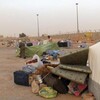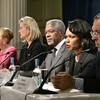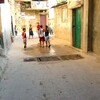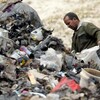
Palestinians allowed into Syria after two months on the Iraq-Jordan border
9 May 2006
A total of 244 Palestinians, including more than 100 women and children, stranded at the Iraq-Jordan border for the past two months were allowed into Syria on Tuesday. The group consists of 181 Palestinians who left the Iraqi capital, Baghdad, in March fleeing death threats, intimidation and kidnapping. They were subsequently joined by additional families escaping the city. On April 22, the Syrian Government announced that it would welcome the stranded group into Syria, under the auspices of UNRWA, the United Nations Relief and Works Agency, which takes care of Palestinian refugees in the Near East. Arrangements for the transfer took two weeks given the security situation in Iraq and other formalities. Read more about Palestinians allowed into Syria after two months on the Iraq-Jordan border








